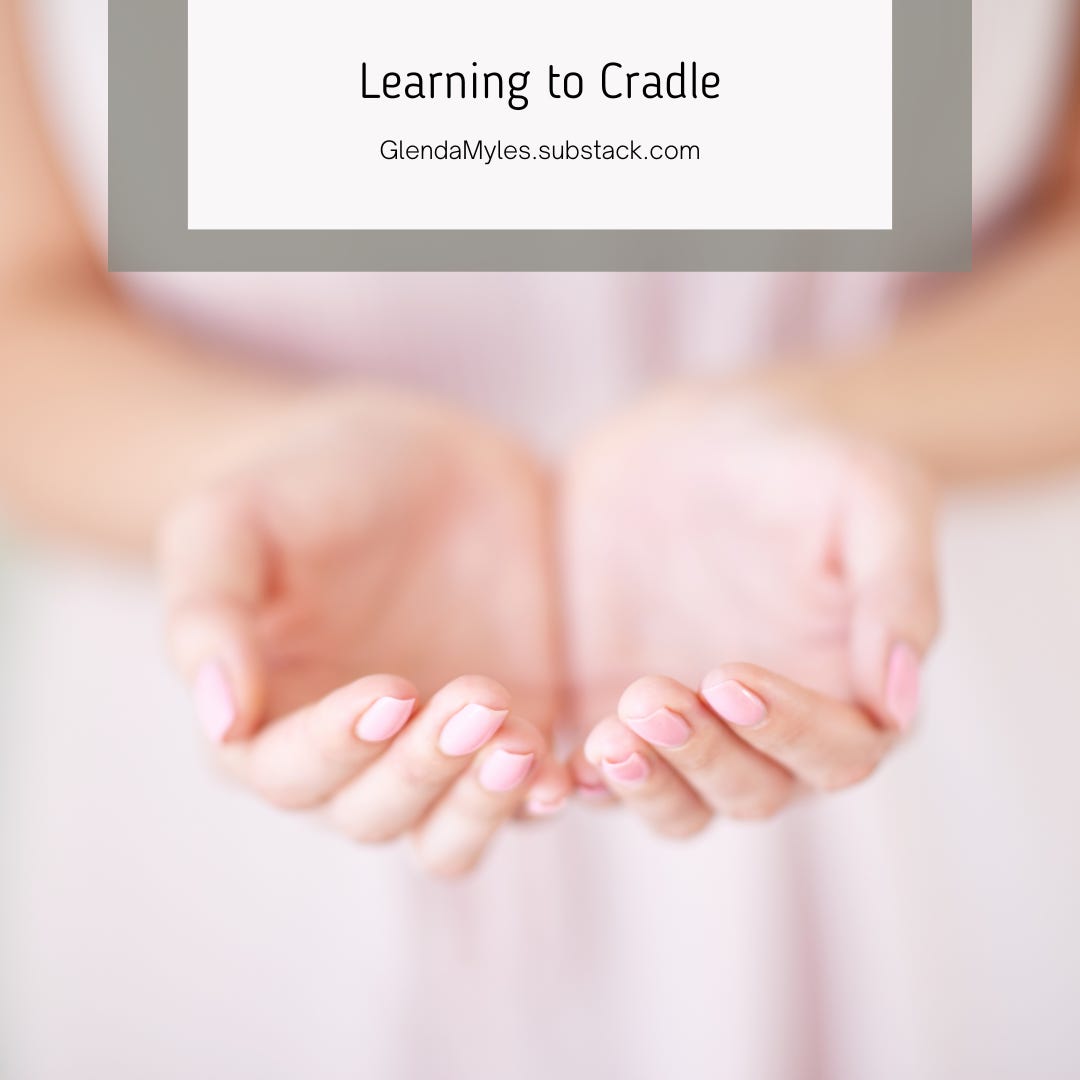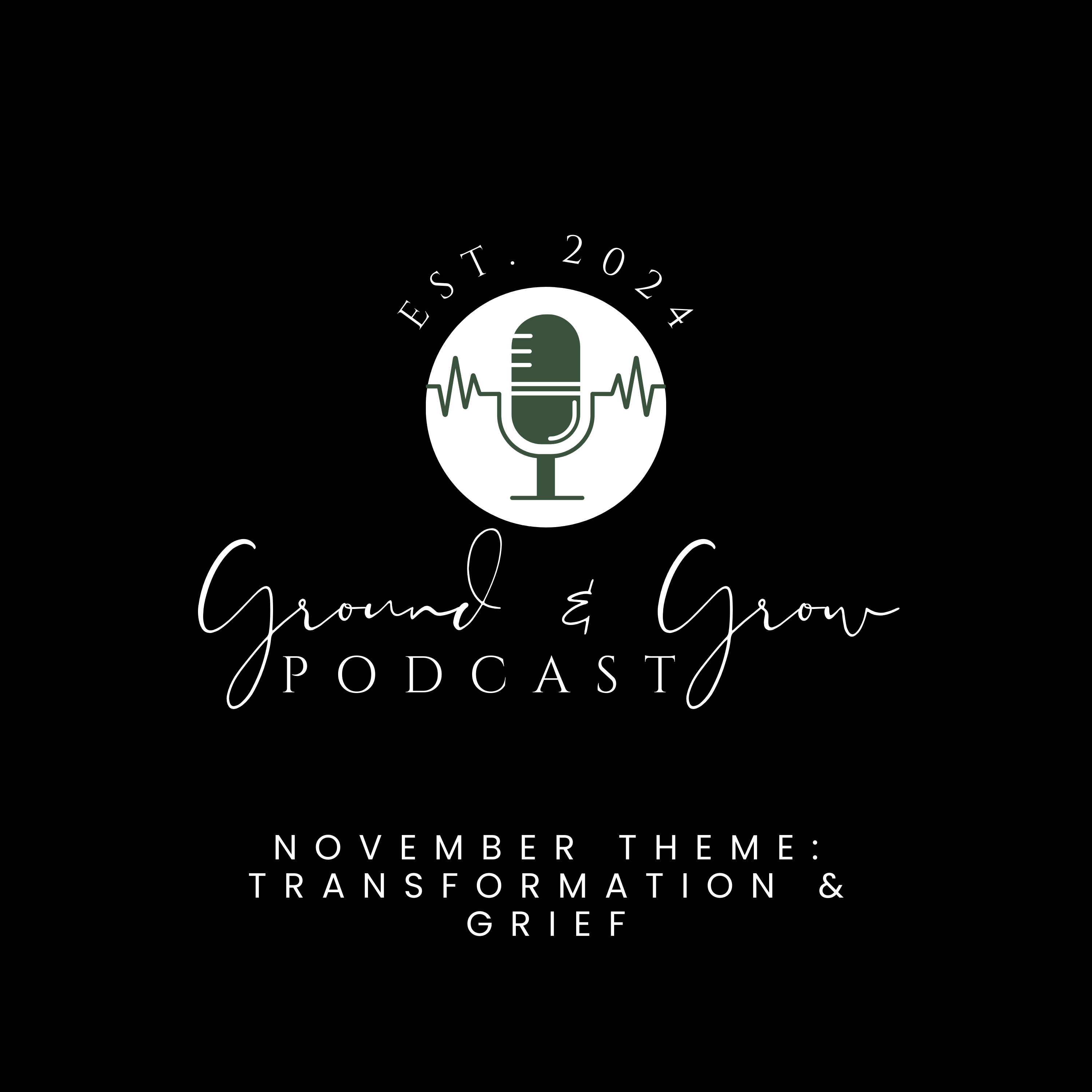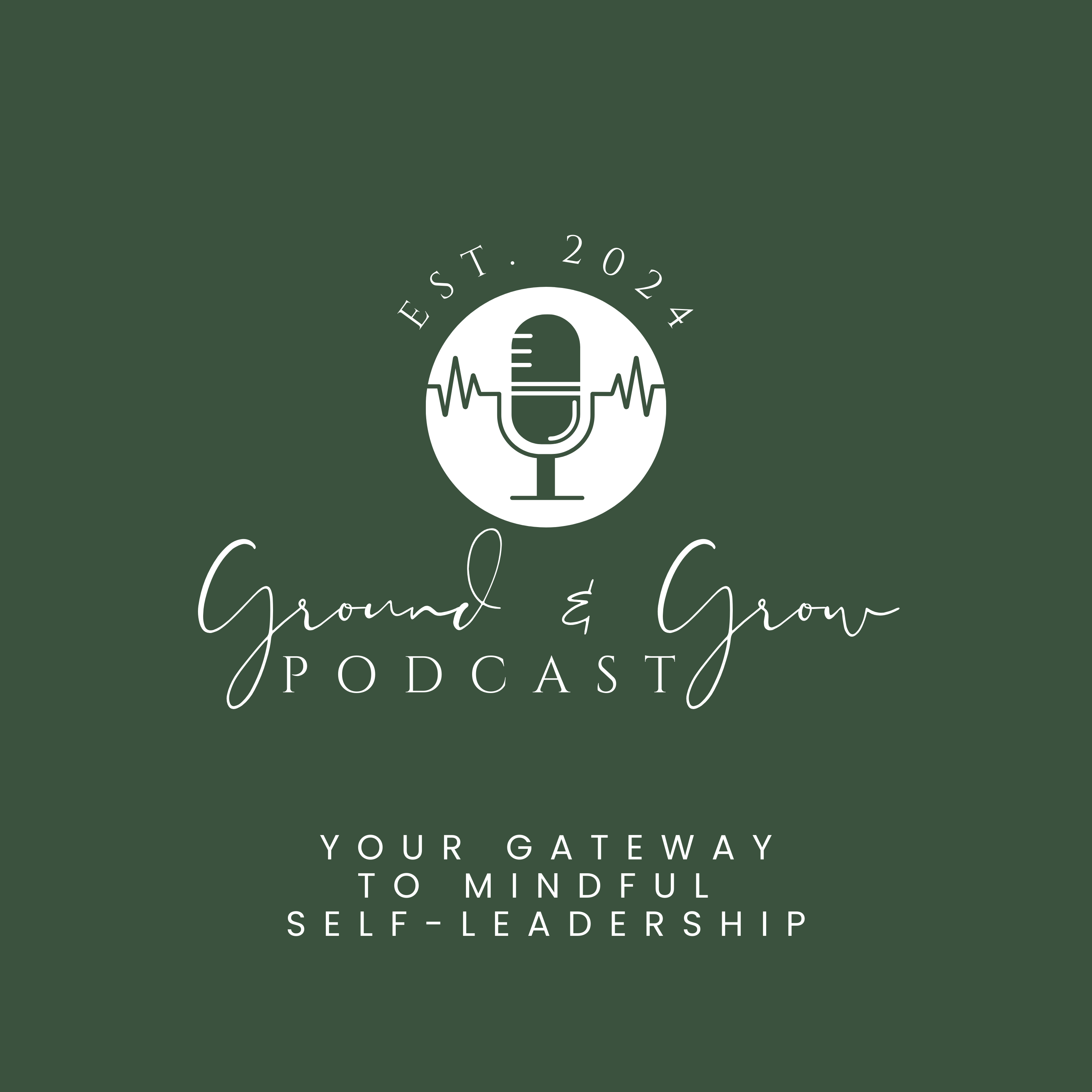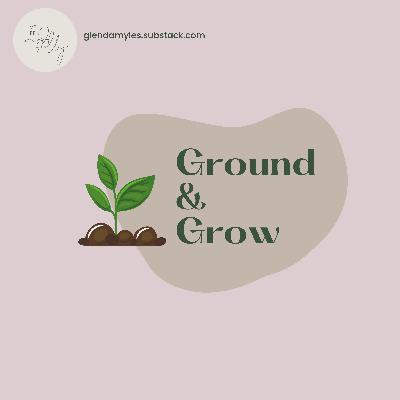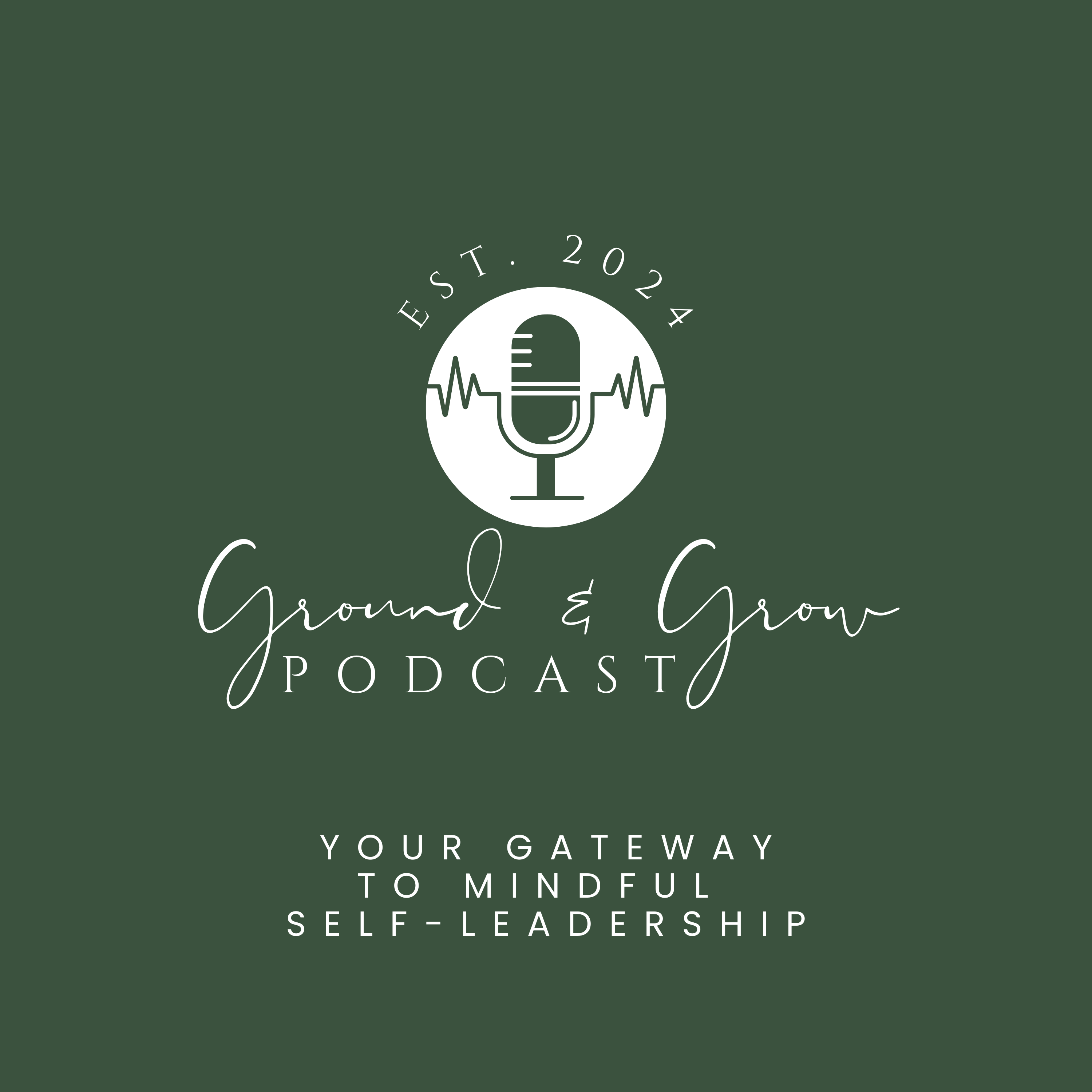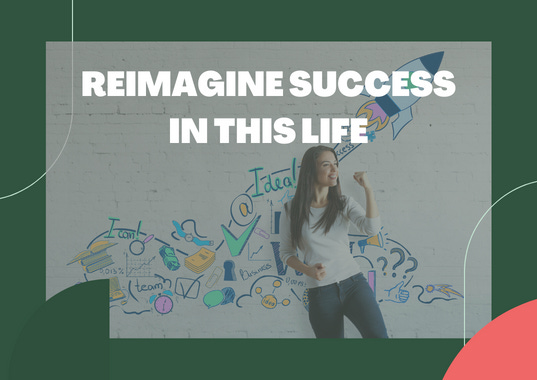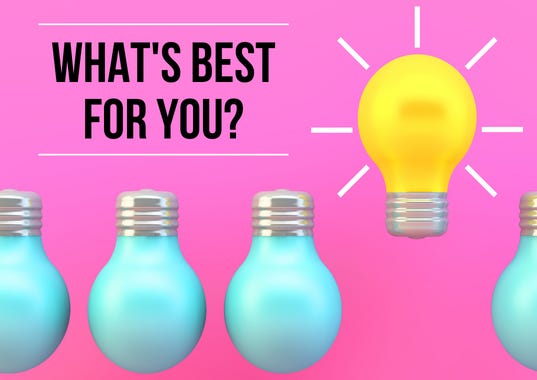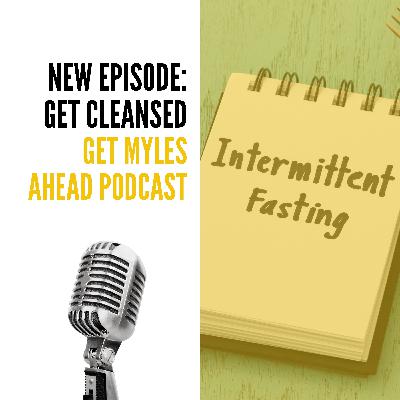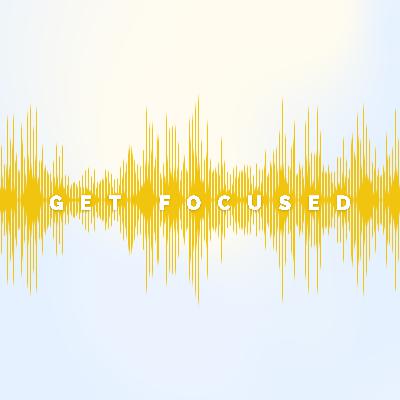Discover Bite-size Practices to Live Life (mind)fully! Podcast
Bite-size Practices to Live Life (mind)fully! Podcast

Bite-size Practices to Live Life (mind)fully! Podcast
Author: Glenda Myles Merk
Subscribed: 0Played: 0Subscribe
Share
© Glenda Myles
Description
We have the power to soothe our stressed-out nervous systems, deepen our connections with ourselves and others, and cultivate a more mindful and fulfilling life. Join us to Learn, Practice, and Grow together.
glendamyles.substack.com
glendamyles.substack.com
12 Episodes
Reverse
Learning to Cradle by Glenda MylesWhen grief settles like winter frost across the chambers of my heart, I no longer fight its presence, no longer wish to tear it apart.Instead, I cup my palms together as if holding morning dew— this ache, this weight, this weathered feeling deserves its gentleness too.Like holding water in sand, I learn to be both vessel and shore, allowing pain its sacred space while leaving room for something more.There are others, countless others, whose hearts bear similar weight. Together we form constellations of healing as we wait.And in this tender holding, this careful, patient art, I discover that compassion flows both towards and from the heart.The hurt may stay its season, may linger like fallen leaves, but now it rests in kinder hands— in the shelter that mercy weaves. This is a public episode. If you would like to discuss this with other subscribers or get access to bonus episodes, visit glendamyles.substack.com
Welcome to Scorpio season and a new month of Ground and Grow! Our theme for the month is Transformation and Grief. Join us starting Friday, November 1st as we explore this theme deeper in Ground & Grow. Self-leadership is the practice of taking responsibility for your own growth, decisions, and well-being. It’s about leading your life from the inside out—grounding yourself in who you are and aligning your actions with your deeper values and intentions. And when we add mindfulness to that, it’s about being fully present with ourselves, aware of our inner world, and intentional in our responses to life’s challenges.When you practice mindful self-leadership, you’re not just reacting to the world around you—you’re taking charge of how you show up, how you respond, and how you move through life’s transitions. And that brings us to the heart of this month’s theme: transformation.Webinar Series I want to take a moment to mention that, alongside this theme, we’re continuing our Transitions and Transformations Webinar Series. In our last session, we discussed how transitions can feel overwhelming but are often gateways to personal growth. If you haven’t had a chance to tune in yet, I encourage you to check it out—it’s a deeper dive into the emotional impact of transitions and how we can use them as opportunities to transform.Our November session is on Nov 20th at 12pm CT/1pm ET - Exploring the role of Grief in Life Changes. This is a public episode. If you would like to discuss this with other subscribers or get access to bonus episodes, visit glendamyles.substack.com
As we close out Libra season of balance and enter Scorpio’s season of grief and transformation, we take a moment to reflect. As we close out Libra season, the sign of harmony and balance, it’s the perfect time to reflect:* Where in your life do you feel in alignment?* And where are you being called to make subtle adjustments to regain balance?Scorpio Season* What am I holding onto that I need to let go of?* What part of me needs to die so that something new can be born?Some upcoming events:* Living Funeral Meditation on November 3rd* Transitions to Transformation webinar series - November 20th Sign up for Ground & Grow before November 1st! This is a public episode. If you would like to discuss this with other subscribers or get access to bonus episodes, visit glendamyles.substack.com
Join me for this 12-min practice that includes a breath practice (sama vritti) for balance followed by a body scan. This is a public episode. If you would like to discuss this with other subscribers or get access to bonus episodes, visit glendamyles.substack.com
This is a public episode. If you would like to discuss this with other subscribers or get access to bonus episodes, visit glendamyles.substack.com
As we sit here in 2023, I think it’s time for us, especially those at a mid-point in our lives, to consider where we are in our lives and what the path before us look like. As we grow, we are conditioned to believe that the “right” path before us is a traditional path of going to school, getting a job, finding a partner, building a career, creating a family, and living happily ever after. We learn WHAT to do in order to be successful and happy. We are often given many things on the to-do list early in life but then the manual becomes ambiguous when we get to the “happily ever after” part. The phrase “happily ever after” suggests a perfect, idealized ending to a story in which all conflicts are resolved and the characters live in a state of eternal happiness. This sets us up for disappointment. Some of us wake up in our late 30s-early 40s and start questioning ourselves and our path - where the heck is my happily ever after? Even if we aren’t so naive to believe in it fully, there is still a part of us that believes in the story we are continually fed that if we do all the things then life will be good. What if we got it all wrong? What if… you are simply chasing what feels like you “should” want instead of what will actually bring you joy?What if… instead of some formulaic plan for everyone we instead were taught how to connect to our own strengths and how to offer our gifts to the world? What if… it’s never too late to shift and take action on what will bring you more joy and fulfillment. Reimagining your life path at midlife can be a powerful way to find greater fulfillment and thrive in your later years. We have many years ahead of us at midlife - change allows for the possibility to be happy in a different way, to find success in a different way. It requires us to go within for the answers not look outward. Remember, it's never too late to reimagine your life path and find greater fulfillment and happiness in your later years. A year of thriving is always better than continuing to feel the heaviness and burden of not living a life led by our best Self. "The most successful people I know are focused on solving important problems and are incredibly present and mindful in their work."— SAM ALTMAN, CEO OpenAI (Creator of ChatGPT)The Road Not TakenBY ROBERT FROSTTwo roads diverged in a yellow wood,And sorry I could not travel bothAnd be one traveler, long I stoodAnd looked down one as far as I couldTo where it bent in the undergrowth;Then took the other, as just as fair,And having perhaps the better claim,Because it was grassy and wanted wear;Though as for that the passing thereHad worn them really about the same,And both that morning equally layIn leaves no step had trodden black.Oh, I kept the first for another day!Yet knowing how way leads on to way,I doubted if I should ever come back.I shall be telling this with a sighSomewhere ages and ages hence:Two roads diverged in a wood, and I—I took the one less traveled by,And that has made all the difference.How do we forge a new path forward toward living life fully? Knowing your SELF. Turning inward allows us to start a new relationship with ourselves. It allows us to connect to our Inner Daimon/best Self in a meaningful way. This allows us to make decisions that are best for us not based on information for the masses. Listen to S1E1 Get Clear podcastReflect on your values and priorities.Do you know your core values? It can be a powerful practice to continually check in on our values and also our priorities in life. Our schedules and how we spend out time don’t always align with what we say is most important to us. Quick practice: * Find a quiet and comfortable space where you can focus and relax.* Take a few deep breaths and clear your mind of any distractions.* Ask yourself some reflective questions, such as:* What do I care about most in life?* What brings me the most joy and fulfillment?* What are my core values and beliefs?* What do I want to achieve in the next 5-10 years?* What kind of legacy do I want to leave behind?* Write down your answers in a journal or notebook. You may also want to create a mind map or vision board to visually represent your values and priorities.* Review your list and identify any common themes or patterns. This can help you identify what's most important to you and what you want to prioritize in your life.* Use your list to guide your decision-making and goal-setting. When faced with a decision or opportunity, consider whether it aligns with your values and priorities.Consider your strengths and passions.Take a test.* Character Strengths* Strength Finder * Human Design * Enneagram Consider your accomplishmentsReceive and reflect on feedback. Remember that identifying your strengths is an ongoing process. As you gain more experience and knowledge, your strengths may evolve and change over time. Stay open to new opportunities and experiences, and continue to reflect on your strengths and how you can use them to achieve your goals.Identify possible obstacles. There are three (probably more) key obstacles that hold us back from taking action to live a more fulfilling life.* Fear - Fear of failure, rejection, or the unknown can hold people back from pursuing their passions and taking risks that could lead to a more fulfilling life.* Social Pressure - Social pressures and expectations from family, friends, and society can make it difficult for people to pursue their own goals and passions.* Negative Self-Talk / Lack of Self-Confidence - Negative self-talk can undermine self-confidence and lead to feelings of self-doubt and low self-esteem. A lack of self-confidence can make it difficult for people to pursue their goals and passions.There are many excuses that will be created to keep us stuck, keep us in the familiar cycle of behaviour. Excuses like our busy schedules, the needs of our family, all the fears, and the lack of self-worth. Can you see the story in your mind that keeps you on your current path? Can you see the subtle ways we sabotage ourselves? Identify potential possibilities. Encouraging imagination and seeing new directions and possibilities can be a powerful way to expand your horizons and create a more fulfilling life. It can allow us to take smaller steps outside of our comfort zone. * Practice brainstorming. Brainstorming is a powerful tool for generating new ideas and possibilities. Set aside some time to brainstorm ideas for new directions you could take in your life, whether it's a new career path, a new hobby, or a new relationship. Try MindMapping - there are some great, free, online tools like Miro. * Engage in creative activities. Engaging in creative activities like writing, drawing, or painting can help you tap into your imagination and see new possibilities. These activities can help you think outside the box and approach problems from a new perspective.* Surround yourself with inspiration. Surround yourself with people, books, and media that inspire you and challenge your thinking. This can help you see new directions and possibilities that you may not have considered before. Seek out groups (in person and online) with like-minded people. * Take risks. Taking risks can be scary, but it can also be incredibly rewarding. Try something new, even if it's outside of your comfort zone. This can help you see new possibilities and expand your horizons.* Travel. Travelling to new places can help you see the world from a different perspective and expose you to new ideas and possibilities. Even if you can't travel far, try exploring new neighbourhoods or cities in your own area.Take action. Change requires disruption. And to shift your path, the reality is that your choices may impact those around you like family, partners, kids, etc. * Identify your fears. It's important to understand why you are scared and what specific fears are holding you back. Write down your fears and try to identify the root cause of each one. Fear is normal when we face change. Don’t let it stop you.* Communicate openly and honestly. It's important to communicate your thoughts and feelings openly and honestly, but also in a way that's respectful and non-judgmental. Use "I" statements to express how you feel and avoid blaming or attacking the other person.* Listen actively. Listen to the other person's perspective and try to understand where they are coming from. This can help you find common ground and identify potential solutions that work for both of you.* Brainstorm solutions together. Work together with the other person to identify potential solutions that address both of your concerns. Be open to compromise and be willing to negotiate.* Practice gratitude: Focusing on what you have to be grateful for can help you appreciate the good things in your life and bring a sense of joy and fulfillment.* Take Action. Do something. Action neutralizes anxiety and fear. Remember that changing things up doesn’t have to mean throwing it all out and starting over. We can start small and feel things out. Experience something new and that alone can shift your perspective. Embrace the journey.Life is a spectacular journey that presents so many different opportunities - to learn and grow, to cultivate deep relationships, to explore the world, and to give back and make the world a better place. Shifting your mindset (more on this top later in April), is central to embracing and enjoying this journey called life. Here are a few ideas to make it a more positive experience…* Accept change: Change is a natural part of life and can be difficult to accept at first. However, accepting change is an important step in embracing a new life journey. Try to focus on the positive aspects of your new journey and the opportunities it presents.* Set goals: Setting goals can help you focus your energy and give you a sense of purpose. Think about what you want to achieve in your new journey and set realistic goals that will help you get there.* Learn new skills: Learning n
What’s Best for YOU?This a question to ponder for a moment. Do you ask yourself this question when making a decision about what to do and how to spend your time? More likely than not, no. Maybe of course when we are making bigger decisions because we give conscious thought to it. But for most of our day, we are on autopilot!And if we do ask the questions, we think we KNOW the answer but don’t often practice it in our daily lives. If we did, we wouldn’t probably feel the way many of us do with rising issues of metabolic syndrome, mental health issues, and burnout. In a LIVE last night, I dove into this question and asked a few more to ponder. In the session, we end with a Loving Kindness Meditation (audio meditation). Optimizing our LivesIn an effort to connect to, and cultivate a deep relationship with, our Inner Best Self or Inner Eudaimon, it’s important to consider the difference between optimal vs perfect. Often we assume we are striving for what’s best, hidden behind a cloak of perfectionism. This drive is not coming from our best Self but is a part created to protect parts of us. Perfectionism can be depilating and actually stops us from living our life fully. As Carl Rogers pointed out, “The good life is a process, not a state of being. It is a direction, not a destination.” And it requires a map that guides us in that direction. Unfortunately for many our map or guiding system has been programmed to include limiting beliefs that move us in the wrong direction. (more on that topic next week!) Perfectionism vs OptimalismIn his book, Happier, Tal Ben-Shahar says, “the optimalism ideal is not a distant shore to be reached but a distant star that guides us and can never be reached.” That can be discouraging to some people because we want to arrive and be able to state “I won” at life. But the very idea may miss the point of life itself - the journey not the destination as the cliche reminds us.He goes on to describe: “… psychologists today differentiate between positive perfectionism, which is adaptive and healthy, and negative perfectionism, which is maladaptive and neurotic. I regard these two types of perfectionism as so dramatically different in both their underlying nature and their ramifications that I prefer to use entirely different terms to refer to them.” Perfectionism - REJECTS the constraints of realityOptimalism - EMBRACES the constraints of reality“Optimalists tend to be benefit finders—the sort of people who find the silver lining in the dark cloud, who make lemonade out of lemons, who look on the bright side of life, and who do not fault writers for using too many cliches. With a knack for turning setbacks into opportunities, the Optimalist goes through life with an overall sense of optimism.Paradoxically, our overall self-confidence and our belief in our own ability to deal with setbacks may be reinforced when we fail, because we realize that the beast we had always feared—is not as terrifying as we thought it was.Tal Ben-ShaharPerfectionists on the other hand reject the constraints of reality which can look like many different things. People assume that the product in the end isn’t restrained by the resources available: that they SHOULD be able to do something regardless of the resources available. Perfectionists see WHAT they want, but ignore/rejects the HOW to get it as an important component of the process. Perfectionists believe that THEY should be able to do it even if they don’t think the same for others. Somehow the rules that apply to them are different. The underlying drivers of optimizing vs perfecting is very different. In perfectionism, it is an aim to be loved and accepted by others, seeking external validation, because often we don’t feel good enough. On the other hand optimizing assumes that we are worthy and that we are living from our Best Self in an authentic manner. It assumes that there are restraints on what we can achieve on any day (given the resources) but that we continue on our journey - learning and growing, failing and adjusting - and thereby succeeding in living our purpose in this life. Thanks for reading. Subscribe for free to receive new posts and support my work.Maslow and Self-Actualization “Anybody under any circumstance whatsoever can be a psychological success—at least in doing the best that one can and doing fully what one can—to be himself or herself and to accept the reality of himself or herself.” Maslow, Future VisionsCarl Rogers actually states that the reason why psychotherapy works and helps people is our inner desire and “man's tendency to actualize himself, to become his potentialities ... to express and activate all the capacities of the organism."We have an innate drive to self-actualize, to move toward our full potential. When we aren’t living to our potential, we CAN and often do feel frustrated, discontent, depressed, and generally unhappy. We may look to the things around us and blame our jobs, our relationships, etc. when truly what is causing much of our discontent is our own lack of effort to live from our Eudaimon and fulfil our purpose (dharma). Fear can be another force moving against us as we allow the fears to not be information or signals, but to assume the truth in it and allow it to stop us in our tracks. We fear the unknown (instead of seeing the possibility), we fear discomfort (and confuse it with pain), and we fear change (because we want to control the narrative) - and all these things are aspects we encounter on our journey. It is the nature of life to change, any step forward into future space is unknown, but we don’t deal with the future we live in NOW. “Courage dear heart.” C.S. LewisFor many people, it begins with accepting life as it is at this moment. We can’t blow it all up (okay so you can and people do, but you don’t have to!). We are constrained by all of our choices to this date (e.g. job, relationship, kids, house, etc). But even with these circumstances, we can begin to move on our journey to self-actualization and optimize our health, wellness, and mindset. Hope is knowing that when we walk this path our future will be better. All movement towards (journey) allows us to feel differently about our lives. It is about each small step that makes up our journey. * Each time we connect to our Inner Best Self, daimon, and cultivate a relationship with this part of Self. * Each time we mindfully approach a part of our life with compassion and care* Each time we ask ourselves ‘what’s best for me today?’ and take action based on the answer. * Each time we seek to use our gifts, talents and strengths* Each time we seek to support or help another person (pro-social behaviours)* Each time we show up (don’t give up) * Each time we find the courage to move past our fear and tolerate the discomfort of change.These small steps move us toward our potential, toward optimizing our lives. What small step can you make today? How about taking a few minutes and connecting with your Inner Daimon? ** Join us on March 16th at our next LIVE where we dive into Ground Yourself: Transform Your Beliefs to Serve You. On March 17th we will be releasing a new Workshop and e-Book on Overcoming Limiting Beliefs. **Disclaimer: Some of the links may include affiliate links. So if you purchase we may receive a small commission. We only promote things we use and approve. If you found this helpful, please hit the like button & consider subscribing. You’ll get the weekly issue & our podcast sent to your inbox. This is a public episode. If you would like to discuss this with other subscribers or get access to bonus episodes, visit glendamyles.substack.com
Welcome to today's episode where we begin to dive into cleansing/detoxing from a fasting perspective. We focus our conversation on Intermittent Fasting and the population that has been shown to really benefit: Women going through perimenopause and menopause. I also share my own personal health journey and what helped the most. See full show notes and resources at: https://mylesaheadwellness.com/blog/s1e4-get-cleansed This is a public episode. If you would like to discuss this with other subscribers or get access to bonus episodes, visit glendamyles.substack.com
The world around us is competing for our attention and this causes our focus to shift from one thing to another often. Thus reducing our ability to concentrate over time as we are easily distracted. Focus has been defined as the central point of one's attention. Attention is simply what an individual is observing. Attention doesn’t exclude any other factors. While concentration starts to control attention and thus excludes other factors around and cultivates the skill of focus. “The internet – especially the rise of apps and platforms that prey on our focus – has supercharged this attention drain. And it’s not due to a personal flaw or individual weakness. Most of these attention-grabbing methods are intentional; they’re elaborately designed for the very purpose of keeping you distracted.” Johann Hari We are living in an Attention Economy where companies are selling OUR attention. Cultivating focus is going to become a radical act. This is a public episode. If you would like to discuss this with other subscribers or get access to bonus episodes, visit glendamyles.substack.com
Welcome to episode 2 in our first season all about the foundations of health and well-being. In today's episode we explore ENERGY. As a society, many people are dealing with a low-grade energy crisis constantly battling for the energy to do the basics of life. What is it? how do we get more of it? what are the most important factors affecting our energy? And as always we give a short practice related to the topic for you to play with over the next couple of weeks. Show Notes: https://mylesaheadwellness.com/blog/s1e2-get-energized This is a public episode. If you would like to discuss this with other subscribers or get access to bonus episodes, visit glendamyles.substack.com
Clarity! In this episode, we begin to lay the foundation for health and wellness by getting clear on who we are (self-awareness), our virtues, and our character strengths. From this space, we are more internally oriented to who we want to be and how we want to show up in the world as opposed to externally oriented and living according to the standards of others (friends, family, society, etc). Clarity breeds sovereignty. This is a public episode. If you would like to discuss this with other subscribers or get access to bonus episodes, visit glendamyles.substack.com
This is a public episode. If you would like to discuss this with other subscribers or get access to bonus episodes, visit glendamyles.substack.com


